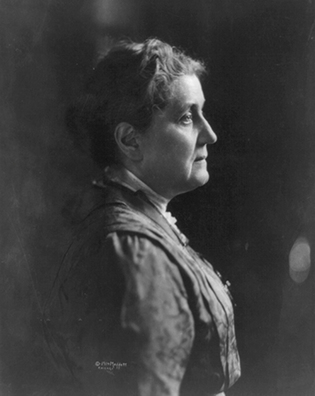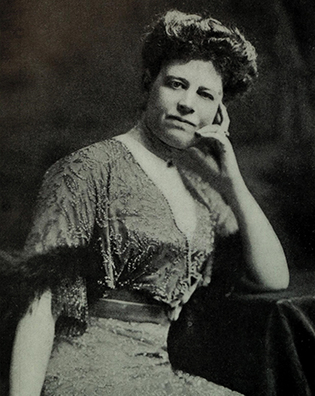 loading
loading
Old YaleWomen of honorThe first ten women to receive honorary degrees from Yale. Judith Ann Schiff is chief research archivist at the Yale University Library.  Jane Addams View full image Mabel Thorp Boardman View full image Mary Emma Woolley View full image Katharine Bement Davis View full image Marie Curie View full imageWomen were first admitted as Yale students 150 years ago, by the newly founded School of Art. Since that moment, there have been many milestones: the first Yale degree earned by a woman, an LLB from the Law School to Alice Rufie Jordan (later Blake) in 1886; the first-ever Yale BFA, awarded in 1891 to Josephine Miles Lewis; and the first Yale PhDs granted to women—seven of them, in 1894. A few years later, Yale began including women among those awarded honorary degrees. The first ten women to receive honorary degrees constitute an early-twentieth-century women’s hall of fame. Jane Addams (1860–1935), developer of the settlement house movement in America, was known and admired for her innovative direction of Chicago’s Hull House, which went beyond charity to neighborhood empowerment, providing day care for working mothers and preparing immigrants for citizenship. At the 1910 commencement where her master of arts degree was presented, she was praised for “a prophetic vision of what might be done and militant courage, united with a high order of administrative, social, and political capacity in doing and getting it done.” In 1931, Addams would receive the first Nobel Prize awarded to an American woman. In 1911, an MA was presented to Mabel Thorp Boardman (1860–1946), head of the American Red Cross, who had revitalized the organization after the resignation of Clara Barton in 1904. Her degree citation noted that “her acquaintance, influence, and power are national and international”; it also mentioned that her grandfather, Joseph Sheffield, was the benefactor of the Yale Sheffield Scientific School. Boardman was followed in 1912 by Cecilia Beaux (1855–1942), “well known as a painter of portraits.” According to Britannica, she was “considered one of the finest portrait painters of the late nineteenth and early twentieth centuries,” recognized by leading critics and institutions of her day as favorably comparable to John Singer Sargent. In 1914 an MA was conferred on Mary Emma Woolley (1863–1947), educator, peace activist, and supporter of women’s suffrage. The first woman to attend Brown University, she was president of Mount Holyoke College from 1900 to 1937. Nine years later, Yale invited her to receive an honorary doctor of laws—the first awarded to a woman. “A woman with two Yale degrees is certainly a Yale man,” quipped Yale professor William Lyon Phelps ’87. Katharine Bement Davis (1860–1935) received an honorary MS degree in 1915. An experimental penologist, she had served as superintendent of the state reformatory for women at Bedford Hills, New York, where she started a prison farm, vocational courses, and a cottage system. Then, as commissioner of corrections for New York City, she improved conditions in its penal institutions relating to drug traffic, women prisoners, and dietary and medical facilities. From 1916 through 1920, no honorary degrees were awarded to women, although they continued to be awarded to men during World War I. At the 1921 commencement, though, two women were awarded degrees. Marie Curie, who received a doctor of science degree, was the first non-American woman to receive an honorary degree. Julia Clifford Lathrop, who was awarded an MA, had been appointed chief of the Children’s Bureau by President William Howard Taft ’78 in 1912. She was known as an advocate for the mentally ill and immigrants. In 1922, Marie A. Nutting, professor of nursing and health at Teachers College, Columbia University, received an MA. This public recognition of the nursing profession presaged the establishment of the Yale School of Nursing the next year, with Annie Goodrich as founding dean. Along with her appointment, Goodrich received a privately awarded honorary master of arts. And the tenth woman to receive an honorary degree, at the 1923 commencement ceremony, was Edith Wharton; hers was the first doctor of letters degree Yale awarded to a woman. Of all these, it was perhaps Curie’s appearance that caused the greatest excitement. Her visit to Yale was part of a seven-week American tour in 1921. She traveled from France to receive a gift from the American people, presented by President Harding: one gram of radium for her research, purchased for $100,000 raised by popular subscription. During Curie’s tour, she received honorary degrees from Yale and five other colleges and universities. In her farewell interview, she praised the work of Yale chemists and physicists, adding that “the Harkness Quadrangle and Tower at Yale is one of the most beautiful pieces of architecture I have seen.”
The comment period has expired.
|
|